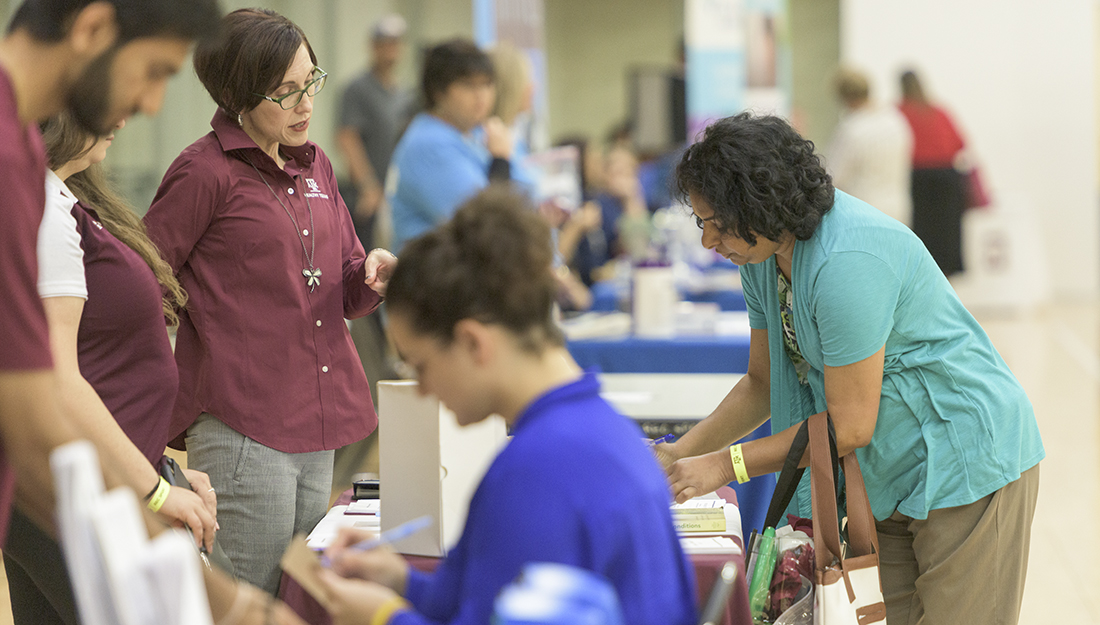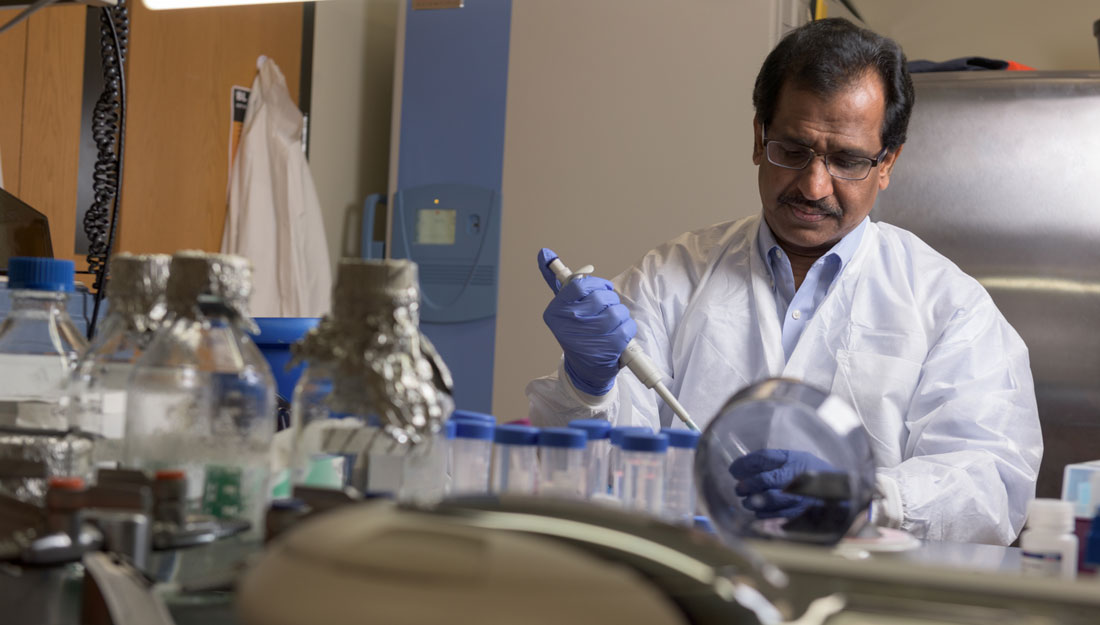- Leslie Cockrell
- Editor's Pick, Featured, Show on VR homepage, Trending
Program teaches self-management for diabetes, prediabetes
Making Moves with Diabetes offers education and resources through yearlong patient support

Participants receive health screenings at a health fair.
Diabetes self-care is a full-time commitment that often requires fundamental lifestyle changes. Health care providers strive to provide their patients with as much information as they can about managing diabetes during an office visit. However, there is rarely enough time during routine visits to cover all the important topics concerning diabetes.
“Diabetes education is a lifelong process because diabetes is a lifelong disease, it causes changes to body systems over time,” said Wendy Creighton, RN, a health educator with Making Moves with Diabetes (MMWD), a diabetes education program of Texas A&M Healthy Texas initially developed by the Coastal Bend Health Education Program. “Diabetes self-care requires daily attention to nutrition, exercise, blood sugar monitoring, medication compliance and stress reduction.”
So much information, so little time
Creighton, who has worked as a nurse for nearly two decades, sees the need for community education on managing diabetes.
“Due to time constraints, most clinicians are unable to adequately teach people during office visits,” she said. “People need more in-depth knowledge about daily diabetes self-care behaviors to help decrease the complications that diabetes can have on the organ systems of the body.”
Offered by the Texas A&M Center for Population Health and Aging, MMWD is a one-day, eight-hour class. During class, health educators teach persons with diabetes or prediabetes how to manage their condition. Topics covered include monitoring blood sugar, the effects of food and exercise on the body, diabetes medications and preventing diabetes-related complications. These programs are highly interactive, providing an opportunity to visualize how physical activity or nutrition impacts their blood sugar levels.
Creighton says one of the most often asked questions by participants of MMWD relates to monitoring blood sugar.
“Many attendees who have had diabetes for years do not regularly check their blood sugar,” she said. “During the class, participants receive a free glucometer and we teach them when, and how, to check their blood sugar.”
Yearlong support
Class attendees also come in for follow-up visits every three months for one year. “These follow-up visits focus on lab testing, goal setting and problem-solving strategies to decrease the overall complications of diabetes,” Creighton said.
Most classes are held at the Brazos County Health Department and CHI St. Joseph’s Hospital but they’re also offered at the College Station Medical Center.
“Before I came to the program, I had a big stomach and my feet were swollen most of the time,” said Betty Lewis, 69, who went to the class in December 2018. She said she constantly felt tired and sore because of the extra weight she was carrying.
“My favorite part about the class was how much I learned about my own body,” Lewis said. “I learned how to check my blood sugar, and I also learned how exercise affects blood sugar.”
After learning how to manage diabetes, Lewis has shed more than 40 pounds and lowered her A1C, which represents the average blood sugar reading over a three-month period. For her, seeing the results of her lifestyle changes motivates Lewis to stay on top of her diabetes.
“I am so happy I was able to lose that much weight,” she said. “I feel much better because I can move more easily and I have more energy. Every day, I look forward to applying the lessons I have learned. If you put the work into managing your diabetes, you will get 100 percent of what you put into it!”
“I think anyone who has diabetes should be a part of this program,” Lewis added.
Active for Life workshops
Along with MMWD, Marcia Ory, PhD, MPH, Associate Vice President of Strategic Partnerships and Initiatives, Texas A&M Health Science Center and Regents and Distinguished Professor, School of Public Health, encourages the community to take advantage of other health workshops offered by the Center for Population Health and Aging. Other workshops cover topics like managing generic chronic conditions, chronic pain management, reducing the risk of falling, and support for caregivers.
“Our center has several evidence-based programs that can benefit individuals with diabetes,” Ory said. “Our staff can help recommend the programs which are appropriate for each individual based on their individual needs.”
To register for classes, call 979-436-9336.
Media contact: media@tamu.edu


